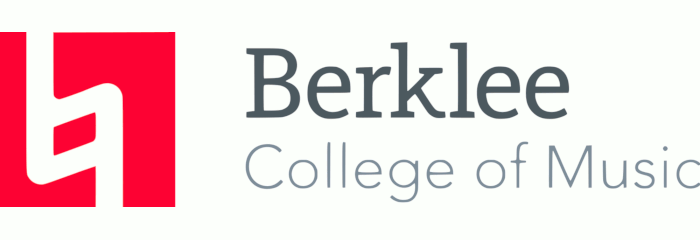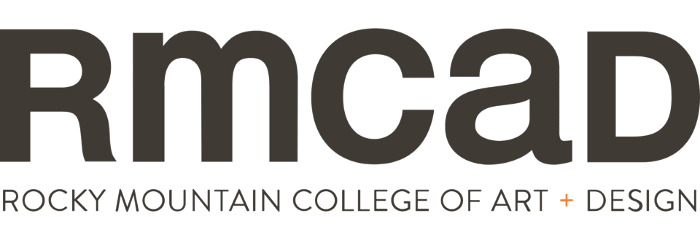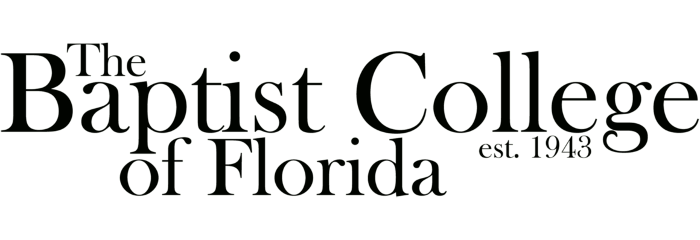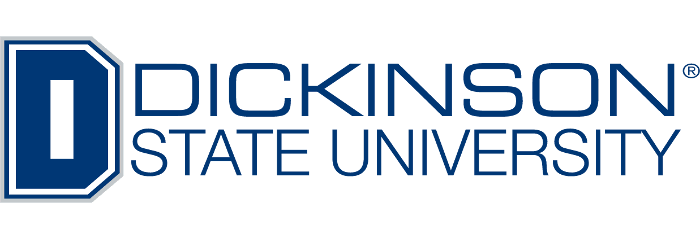Those who love performing and the entertainment field may enroll in an online bachelor's degree in music to continue honing their craft and developing skills that apply to their career goals. We've curated a list of the best online programs in music and ranked them by online enrollment so that you can choose from a list of the most popular programs.
View our methodology for more details about our list, or learn about OnlineU. If you are interested in studying a broader field that's still within the arts, an online bachelor's degree in liberal studies may be a better fit.
Liberty University
- Online Enrollment: 34,799 enrolled
- Annual Tuition: $11,700
- Location: Lynchburg (VA)
Liberty University (LU) is a private, nonprofit, Evangelical institution offering an online Bachelor of Science in Commercial Music. Courses last eight weeks, with eight start dates throughout the year. Distance learners in the Music Business program participate in classes such as Entertainment Law in the Music Industry, Music Business Agreements and Licensing, and Recorded Music Operations. Graduates pursue jobs that range from tour managers and production managers to artist developers and music managers.
Why we like them: LU uses Canvas for online asynchronous course content delivery. Asynchronous courses offer the advantage of flexible learning schedules, allowing students to access course materials and complete assignments at their convenience without specific real-time class attendance requirements. This format empowers learners to manage their time effectively, accommodating diverse schedules and commitments while fostering independent learning and self-paced study.
Full Sail University
- Online Enrollment: 19,640 enrolled
- Annual Tuition: $26,307
- Location: Winter Park (FL)
Full Sail University is a private, for-profit institution offering an online Bachelor of Science in Music Production. Full Sail's music production curriculum aims to help students gain a comprehensive understanding of music creation, beginning with foundational concepts like music theory and composition before delving into a wide array of intricate procedures and applications prevalent in the music production industry. Covering topics from digital audio principles to advanced engineering techniques, coursework encompasses a range of essential skills for aspiring professionals.
Why we like them: With flexible start dates including January, February, March, and April, this bachelor's program offers both campus and online learning options. This flexibility provides increased convenience and accessibility, allowing individuals to begin their academic journey at a time that aligns better with their life circumstances, including work obligations, family responsibilities, or other time constraints.
LA Film School
- Online Enrollment: 3,909 enrolled
- Annual Tuition: NA
- Location: Los Angeles (CA)
Los Angeles Film School offers an online Bachelor of Science in Music Production, which helps students improve their music-producing skills to create high-quality tunes. Some of the program’s courses include Sequencing Technologies, Acoustics & Studio Design, and DJ Production Skills. Students are required to complete six credit hours of music production portfolios to graduate. Graduates may go on to careers like music producers, instrument technicians, and audio technicians.
Why we like them: At LA Film School, you receive an online student Techkit. The student Techkit includes a MacBook Pro with software like Logic Pro, Pro Tools, and Ableton Suite. You’ll also receive a MIDI Keyboard, USB audio interface, a microphone, headphones, and other supplies to help you succeed.
Academy of Art University
- Online Enrollment: 2,894 enrolled
- Annual Tuition: $26,728
- Location: San Francisco (CA)
The Academy of Art University is a private, for-profit institution offering a 100% online Bachelor of Fine Arts in Music Production. Distance learners in the music production bachelor's program enroll in classes such as Production Sound Recording, History of Gaming, Respect for Acting, and The Music Mix. All courses are taught from a Christian perspective, as the university's mission is to "Train Champions for Christ. Alums work in various media, including film, animation, games, and other web media.
Why we like them: The degree requirements of an internship and the creation of a demo reel before graduation provide students with practical hands-on experience in their field, preparing them for the professional landscape by showcasing their skills and capabilities to potential employers.
University of Maine at Augusta
- Online Enrollment: 2,833 enrolled
- Annual Tuition: $19,778
- Location: Augusta (ME)
The University of Maine at Augusta (UMA) is a public institution offering an online Bachelor of Music in Contemporary and Popular Music, with emphases on Performance, Audio Recording, Composition/Songwriting, Sonic Arts/EDM, Music Education, or a mix. An eight-minute video audition is required to enroll, depending on the emphasis chosen. Online coursework in the Contemporary and Popular Music degree program includes Music Theory and Practice, Audio Recording, Vocal Techniques, and Music Performance Ensemble.
Why we like them: Students must complete a recital, PRAXIS Core Academic Skills for Educators, or portfolio review before their final year. These requirements serve as benchmarks, providing students with essential practical experiences and assessments necessary for their academic advancement and professional readiness. These also offer practical applications of their learning, enabling them to refine their abilities, showcase their expertise, and prepare for the challenges they will face in their final year and beyond.
Berklee College of Music
- Online Enrollment: 1,695 enrolled
- Annual Tuition: $48,330
- Location: Boston (MA)
At Berklee College of Music, students will learn to multitrack record, edit, dub, and mix music with the online Bachelor of Arts in Music Production. The Music Production concentration is 45 credit hours and includes courses like Music Production Analysis, Creative Music Production Skills, and Art of Mixing. Prospective careers for the program’s graduates include recording engineers, live sound engineers, and sound technicians.
Why we like them: If you want to pursue online education beyond your music production degree, Berklee offers more than 200 online courses, more than 50 certificate programs, and four online graduate degree programs you can pursue revolving around music. All courses allow flexible learning, have renowned instructors, and have small class sizes.
Rocky Mountain College of Art and Design
- Online Enrollment: 1,247 enrolled
- Annual Tuition: $22,607
- Location: Lakewood (CO)
The online Bachelor of Fine Arts in Music Production offered at Rocky Mountain College of Art and Design (RMCAD) helps students develop their knowledge of music and improve their technical and business skills. The 123-credit-hour program includes coursework like Music Production Styles and Analysis, Theories of Musical Practice, and Critical Listening. Potential career options for graduates include sound installation artists, sound recordists, and mastering engineers.
Why we like them: Throughout the online music program, you’ll work on developing your portfolio. At RMCAD, you’ll collaborate with your instructors and use the skills and knowledge you’ve gained during your degree to create a well-rounded portfolio that you can show to future employers or use to apply for graduate school.
The Baptist College of Florida
- Online Enrollment: 319 enrolled
- Annual Tuition: $12,450
- Location: Graceville (FL)
The Baptist College of Florida (BUF) offers an online Bachelor of Arts in Music that provides students with a broad overview of music, covering topics like music reading and voice and instrument performance. Some of the program’s courses include Sight Singing Ear Training, Music History: Antiquity through Baroque, and Basic Conducting. First-year students are required to complete a Student Success Course. Graduates may pursue careers like concert artists, private music teachers, and studio session players.
Why we like them: With this online degree at BUF, you’ll be able to develop a deeper understanding of music and get the chance to further your connection to your religion. As a Baptist Church-affiliated institution, BUF requires you to take four courses in Biblical Theology alongside your music courses.
Valley City State University
- Online Enrollment: 280 enrolled
- Annual Tuition: $13,422
- Location: Valley City (ND)
At Valley City State University (VCSU), students can create their own music degree that fits their interests with the online Bachelor of Arts/Bachelor of Science in Music. Students can take courses in topics like music composition, conducting, and band. The program’s curriculum includes courses like Music Theory, Aural Skills, and Basic Conducting. Students are required to complete a capstone project before graduating. Prospective careers for graduates include digital audio editors, recording studio managers, and audio-visual technicians.
Why we like them: If you live near VCSU’s campus, you have the opportunity to perform your musical talents. VCSU offers several venues for online and traditional students to perform, including Concert Choir, Concert Band, Athletic Band, Jazz Ensemble, and others.
Dickinson State University
- Online Enrollment: 269 enrolled
- Annual Tuition: $11,218
- Location: Dickinson (ND)
With the online Bachelor of Arts Music offered at Dickinson State University (DSU), students can select a band instrument, voice, or keyboard instrument as part of their major performing area. The program, which ranges from 119 to 121 credit hours, includes example coursework like Performance Class, Primary Large Ensemble, and Music Technology. A freshman seminar, an exam, and a senior recital are required for graduation. Future career opportunities for graduates may include music directors, sound mixers, and instrument technicians.
Why we like them: Large college courses, whether online or in person, can be intimidating for some students. If you’re looking for a smaller class size, the average student-to-faculty ratio at DSU is 13:1. Small class sizes give you a better opportunity to connect with your professors and fellow classmates, providing a more intimate virtual environment.
Virginia Wesleyan University
- Online Enrollment: 110 enrolled
- Annual Tuition: $36,910
- Location: Norfolk (VA)
Virginia Wesleyan University (VWU) has an online Bachelor of Arts in Music Production that prepares students for a career or graduate studies in music production. Some courses offered in the online degree program include Keyboard Harmony, Basic Musicianship, and Digital Composition Workshop. Students are required to complete a Digital Music capstone to graduate. Potential career options include music producers, copyists, and sound designers.
Why we like them: Many students worry about finding a job or being admitted into a graduate program once they graduate. If you’re looking for an institution that sets online students up for success once classes are over, consider attending VWU. At VWU, more than 90% of their alumni find employment or are accepted into graduate school within a year.
ADVERTISEMENT
Online Music Bachelor's Degrees You May Be Interested In
List Of Accredited Online Music Schools
| School | Online Enrollment | Annual Tuition |
|---|---|---|
| Liberty University | ||
| Full Sail University | 19,640 | $26,307 |
| LA Film School | 3,909 | NA |
| Academy of Art University | 2,894 | $26,728 |
| University of Maine at Augusta | 2,833 | $19,778 |
| Berklee College of Music | 1,695 | $48,330 |
| Rocky Mountain College of Art and Design | 1,247 | $22,607 |
| The Baptist College of Florida | 319 | $12,450 |
| Valley City State University | 280 | $13,422 |
| Dickinson State University | 269 | $11,218 |
| Virginia Wesleyan University | 110 | $36,910 |
What Is An Online Music Degree?
Aspiring musicians and entertainment professionals can pursue an online music degree to learn various aspects of the music industry. There are programs focused on music production, business, theory, and education, each allowing students to develop a foundational understanding of their discipline and learn practical skills. Many music degrees are liberal arts programs at their core core, featuring interdisciplinary coursework on diversity, culture, and ethics in music.
Students can hone their craft through an online degree in music, whether the program involves instruments, singing, recording, or production. There are also programs involving music history and criticism, music therapy, and artist management. Music is a versatile field and includes a wide array of study options.
Students should always pick an accredited school for their online music degree. This designation lets them know that a third-party education agency has adequately vetted the programs they're studying and the faculty that teach them. Every school featured on OnlineU is accredited.
How Long Does It Take To Get a Music Degree Online?
A bachelor's degree in music typically takes full-time students four years to complete. Some programs allow students to transfer up to 75% of their credits, which decreases the time it takes to graduate to just over three years. Music degrees require approximately 120 credits, with some programs having a minimum number of credits taken each semester to be eligible for financial aid and scholarships.
Types of Music Degrees
There are a lot of different music degrees, each focused on either technical, managerial, or theoretical studies, depending on the specialization.
Specializations allow music majors to center their studies around a specific niche in order to prepare for their career goals.
Graduates may want to gain experience in music theory and composition to become composers, conductors, singers, or musicians. Others may aim to become therapists through a music therapy degree online. Aspiring high school teachers will want to pursue an online music education degree.
Some schools are devoted entirely to music and therefore offer a wide range of relevant majors. Berklee College of Music, for example, has 15 music majors at the bachelor's level, allowing students to narrow their coursework to fulfill learning objectives in areas such as film scoring, Black music, jazz composition, and songwriting. Berklee also offers an online music business degree with courses in marketing, touring, law, and finance.
Common Courses in a Music Degree
The curriculum of online music programs includes classes in music theory, music history, psychological and sociological aspects of music, conducting, theory and application of music education, music technology, and trends in music education. While the curriculum and organization of online music education degree programs vary, many programs require students to complete an internship or thesis project after they complete the coursework component of the degree.
Music programs delivered on campus are typically hands-on, as students practice and perform their instruments and receive feedback and guidance from classmates and instructors. Students in on-campus music technology and production programs may have opportunities to put their knowledge to work in real recording studios. Online programs try to re-create this experience by using streaming video, collaborative software, and other technologies. Some online programs may require students to enroll in individual lessons and join performance groups at local colleges and universities for credit. Consider your learning style and needs when researching online programs.
Although on-site training is not commonly required for online music schools, students interested in working professionally in the music industry, especially as performers, are advised to gain some professional experience before graduation. Working musicians must be prepared to find gigs, conduct themselves professionally, and network effectively, so students should begin practicing for their careers as soon as possible. Students hoping to work in other aspects of the music industry, like management or marketing, can also benefit from gaining professional experience before graduation to become more attractive to employers.
Here are four common courses for a music degree online:
Music Business
This is a core course in many majors because it discusses the music industry as a whole, including the labels, publishers, distributors, promoters, and managers that keep it profitable. Musicians and business professionals benefit from learning how each segment functions, how money is generated, how technologies are utilized, and how rights are protected.
Music Production Analysis
Music production analysis explores the various components of successful songwriting and record production. Artists learn to develop an identity, tell stories through lyrics, create compelling melodies, and arrange instruments. The end of the course involves an analysis of these fundamentals, where students learn when it's appropriate to break the rules.
Music Foundations in Therapy
This course teaches students about the intersection of music and neurology, including the cognitive and sensorimotor research that propels this field. Instructors cover the history of music therapy, the latest research in the neurosciences of music, clinical practices of music therapy, and biomedical music studies.
Voice Technique
Voice technique courses are practical online learning sessions between voice coaches and performers. Singers engage in live video sessions where they learn to maximize their voice by expressing emotion, expanding their range, and understanding melody. They also cover breathing work, tone, voice care, and harmony.
What Jobs Can I Get With a Music Degree?
Earning a music degree online prepares students for a variety of careers. Musicians can study specific instruments, gaining an in-depth knowledge of their craft from seasoned professionals. This is particularly beneficial for aspiring orchestral musicians who must have music degrees to join symphony orchestras. Music managers also greatly benefit from a music degree.
Music is a business like any other form of entertainment and therefore requires business-savvy professionals trained in marketing, finance, and public relations.
Composers
Composers write and arrange music, including creating the melodies, lyrics, rhythms, and structures of songs. Their work may appear as symphonies, movie scores, pop music, or radio advertisements. They also have administrative responsibilities such as hiring musicians, organizing rehearsals, and arranging recording time.
Musicians
Musicians write and perform music in a range of formats and settings. Much of their work is done independently and requires tremendous practice and training devoted to their instruments. Once skills are acquired, however, musicians often perform in groups such as bands and orchestras. Paid work is usually intermittent, with many musicians playing part-time or as a hobby.
Sound Technicians
Sound technicians play an essential role in music production, whether in studios or during live performances. Their highly technical work involves an advanced understanding of music recording software and sound equipment. They set up and break down equipment, record instruments and vocals, and mix the music to the artists' specifications.
Music Therapists
The rise of music in clinical practices has made music therapists a promising and effective career choice. Professionals are responsible for influencing patients' behaviors and improving their cognitive functions by creating personalized music sessions. This may include lyric discussions, viewing live performances, writing songs, and playing instruments.
Rather than entering the workforce directly after graduating, there are several academic options to pursue beyond a bachelor's degree in music, such as master's programs for graduates interested in teaching music at the university level. PhD programs can also be taken for academic research in music composition and theory. Then there are certificates that are used to learn specific software, such as Ableton Live, or musical styles, such as blues guitar.
How Much Money Can I Make With an Online Music Degree?
Salaries for music graduates range from around $50,000 to $80,000, depending on the career path chosen. Pay also varies significantly by level of exposure and public reception, particularly for musicians and composers.
Students can help manage the uncertainty by limiting their debt during college through affordable bachelor's degrees in music. Alternatively, affordable master's degrees in music can help aspiring music teachers, counselors, and composers achieve their career goals with lower tuition costs.
Applying For a Music Degree
It's important that applicants understand the admission requirements before picking a college. Students should have a background in music before applying to college for a music degree. Not all schools require extensive experience, but to prove they have a strong desire to make music a career, it helps if applicants show their music knowledge. Musicians and singers, for example, must undergo an audition for their particular instrument.
FAQs About Online Music Degrees
Can You Get a Music Degree Online?
Music degrees are widely available online and are just as respected as campus degrees. Lectures are viewed through live or recorded video sessions, while homework assignments and tests are delivered through an online learning management system. Online music students may have opportunities to gain professional experience with local businesses, schools, or performance groups through internships.
What Is a Good Degree for Music?
How good a music degree is depends on each individual and their post-graduation expectations. Some students may want a broad range of career opportunities, in which case a music business degree may be best for them. Passionate musicians may be eager to learn everything about their instrument from experienced professionals, prompting them to pursue a specialized degree in saxophone, jazz piano, or percussion. Aspiring music teachers need practical classroom experience, making music education a good degree for them.
Can You Major in Music With No Experience?
Some schools may accept music majors without prior experience as long as they have a good GPA. However, this is less true for musicians who must show audition videos to prove their skills with an instrument. Students who have played in a band, sang in a choir, or even worked in a record store will have a better chance of securing admission into a music degree than those without any experience in the industry.
Do I Need a Degree To Become a Musician?
Generally speaking, a degree is not required to become a musical performer, such as a musician or singer. This is one field where skill and talent are just as important, if not more so, than education. However, performers who do pursue degrees may gain an advantage by studying the business aspects of the music industry as part of their degree curriculum. The one exception to this rule is in classical music, where performers are usually expected to have a formal education.
Are Music Degrees Worth It?
The music industry offers many career paths, and a music degree can provide students with the proper knowledge and experience to make a living. Although salaries vary from role to role, music majors have the opportunity to discover niche areas that fit their interests. Check out some of the pros and cons of earning music degrees below:
Pros
-
There are more music-related opportunities in the U.S. than anywhere else. A 2020 report from the Record Industry Association of America (RIAA) found that the music industry contributed $170 billion in value to the economy.
-
Musicians love what they do for a living. In 2019, 90% of musicians reported high job satisfaction — well above the average of other occupations.
-
Music graduates are in a unique position to help others. Whether through counseling children in music therapy or performing in orchestras, music degrees are a great way to positively impact other people's lives.
Cons
-
Consistent work is hard to find for most musicians. Full-time jobs for singers and instrumentalists are uncommon, with most working part-time and taking occasional gigs.
-
Music degrees are not always necessary. Music teachers and therapists are required to have at least a bachelor's degree, but musicians do not need a formal education to be successful.
-
Music takes a lot of discipline. Professional musicians require significant practice and training, which is generally considered a lifetime process.
Related Articles
2024 Best Online Associate Degrees
Learn about the best online associate degrees available in 2023 from our list of accredited online schools.
By OnlineU Staff Writers | 11/1/2023














